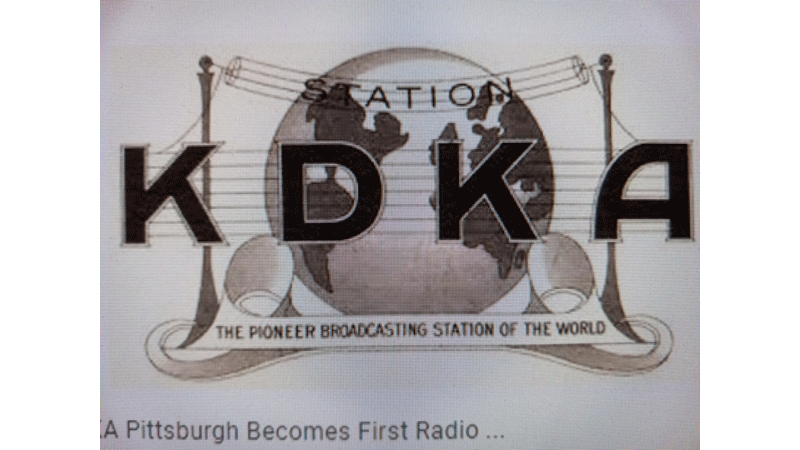Radio
Published 10:08 pm Tuesday, April 26, 2022

- The first commercial radio station in the country was established by KDKA out of Pittsburgh in 1922. (Photo submitted by Clyde Parker)
|
Getting your Trinity Audio player ready...
|
By Clyde Parker
Back in the year 1922, a The Tidewater News editorial by publishers Paul Scarborough and Joseph P. King, Sr. was addressing the Southampton-Isle of Wight-Franklin area radio craze – in common with thousands of communities throughout America.
Following are highlights of the May 1, 1922 editorial:
The G. H. Steinhardt and Company of Franklin is now installing an elaborate radio set for their customers; and, the Knights of Pythias Hall, Cypress Cove Country Club, and several other organizations are planning to install radios for the benefit of their members. Recently, Edwin H. Armstrong, who patented and pioneered in the sending of wireless sound transmissions, said “the time is not far off when the wireless radio receiver will be as common as the ‘Victrola’. Not everyone will have radio receivers, of course, but I can predict that every home now having a phonograph and / or telephone will be equipped with a wireless radio.”
It is reported that Mr. Chandler, manager of the Franklin Home Telephone & Telegraph Company, curiously, for some period of time now, has been picking up sounds: music, oratory, sermons, etc., out of the “ether” (air) every day. It is called RADIO – wireless transmissions of sounds. Is there a connection between the telephone company and wireless radio? It is unclear to us.
Telephones have been in use for a long period of time, using wires for transmission of sound. But, the advantage of radio, is the fact that it is wireless – and can be broadcast through the air from stations at various central locations to multiple homes and businesses simultaneously.
Although, presently, most radios are receiving sets only, the radio fan will, likely, progress to the point where he or she wishes to talk as well as listen; and, the consequence of three million voices babbling in the night and through the skies is more easily imagined than endured. Some scientifically-minded people believe, although highly far-fetched, the future will likely bring about portable – wireless – over the air – individual “radiophones” which will allow people to communicate with each other from anywhere to anywhere.
And, when we look back on what electricity has done for the past half century, the wireless transmission of high-voltage power for commercial uses is not without the range of possibility.
Now, not only is the air full of wireless radio messages, but newspapers and magazines are devoting columns to the possibilities of the radio and are conducting radio departments and publishing daily programs to be broadcasted from Pittsburgh, Newark, Chicago, Schenectady, and other radio centers. We hear and read much of aerials, antennas, transformers, detectors, amplifiers, and other radio nomenclature. Secretary of Commerce Herbert Hoover is responsible for the statement that radio receivers were installed in the homes of three million Americans in the year 1921; and, throughout the country, there is everywhere evidence of the radio craze. Radio sets are advertised at a price ranging from a few dollars up into the thousands, and every boy with an inventive turn of mind is working on an amateur set from plans taken from some popular technical magazine.
Already, politicians, who are opportunists, have already seized upon the possibilities of the wireless radio to send their speeches to their constituents. Indeed, the idea has taken Republican Washington by storm, making it necessary for Federal authorities to prohibit the use of any government wireless radio for the transmission of political propaganda.
During the early 1920s, hundreds of radio stations sprang up across the country. In Southampton-Isle of Wight-Franklin, during that time, radio receivers were picking up broadcasts from distant stations – from other parts of the country. The first commercial radio station in the country was established by KDKA out of Pittsburgh in 1922. In 1923, WTAR in Norfolk, Virginia went on the air, broadcasting a two-hour concert. WRVA, Richmond, Virginia went on the air in 1925.
CLYDE PARKER is a retired human resources manager for the former Franklin Equipment Co. and a member of the Southampton County Historical Society. His email address is magnolia101@charter.net.





